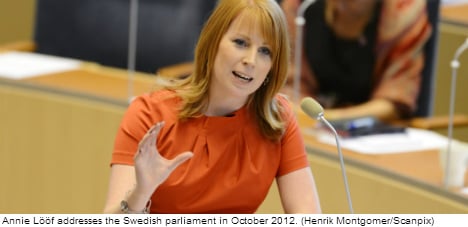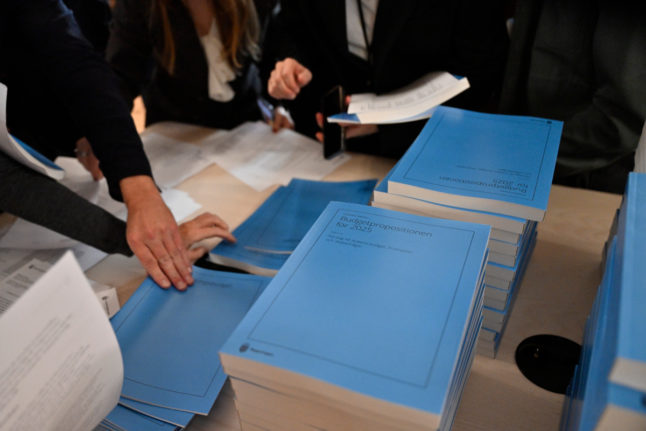Politicians dominated this year’s ranking published by news magazine Fokus, with Lööf, who also heads the Centre Party, coming in seventh.
She has, however, been downgraded from last year’s third place, with Fokus noting that questions about her ministry’s representation budget saw voter-confidence take a tumble.
The prime minister, Fredrik Reinfeldt, maintained his hold at the top of the list, which includes 100 Swedes from different parts of society.
RELATED GALLERY: SWEDEN’S TEN MOST POWERFUL PEOPLE
Pony-tailed Finance Minister Anders Borg, meanwhile, repeated as runner-up on the list.
He is followed by Social Democrat leader Stefan Löfven, who took over the left-of-centre party this year after it suffered months of opinion-poll drudgery.
Last year, Löfven had been ranked the 20th most powerful Swede when he still controlled the metal workers union IF Metall.
Liberal Party (Folkpartiet) head and Education Minister Jan Björklund, who also serves as Deputy Prime Minister, came in fourth.
Karl-Petter Thorvaldsson, who took over the reigns of blue-collar Swedish Trade Union Confederation (LO) earlier this year, made a high-ranking debut on the Fokus list, grabbing fifth place.
Thorvaldsson is followed by the first of two businessmen to make the top ten.
Leif Johansson, board chairman of both telecom giant Ericsson and pharmaceutical heavy-weight Astra Zeneca, was ranked sixth.
Then comes Lööf, the lone woman among her powerful peers.
Hot on her heels is the head of another minority party in the centre-right government coalition, Göran Hägglund, who apart from heading the Social Affairs Ministry spent part of the year successfully stamping out an internal Christian Democrat Part rebellion against his leadership.
Marcus Wallenberg, chairman of the board at SEB bank, LKAB and Saab, was ranked ninth.
Meanwhile, Riksbank head Stefan Ingves rounded out the top ten, having dropped three spots from his seventh place ranking last year.
The Local/at



 Please whitelist us to continue reading.
Please whitelist us to continue reading.
Member comments